
Filter News
Area of Research
- Advanced Manufacturing (1)
- Biology and Environment (2)
- Computer Science (2)
- Energy Science (4)
- Fusion and Fission (7)
- Isotopes (2)
- Materials (6)
- Materials for Computing (2)
- National Security (6)
- Neutron Science (2)
- Nuclear Science and Technology (3)
- Quantum information Science (1)
- Supercomputing (8)
News Type
News Topics
- (-) Computer Science (28)
- (-) National Security (10)
- (-) Nuclear Energy (17)
- 3-D Printing/Advanced Manufacturing (23)
- Advanced Reactors (5)
- Artificial Intelligence (17)
- Big Data (9)
- Bioenergy (9)
- Biology (10)
- Biomedical (7)
- Biotechnology (2)
- Buildings (10)
- Chemical Sciences (18)
- Composites (5)
- Coronavirus (4)
- Critical Materials (1)
- Cybersecurity (6)
- Emergency (1)
- Energy Storage (18)
- Environment (19)
- Exascale Computing (10)
- Frontier (9)
- Fusion (10)
- Grid (6)
- High-Performance Computing (21)
- Irradiation (1)
- Isotopes (10)
- ITER (2)
- Machine Learning (5)
- Materials (34)
- Materials Science (20)
- Microscopy (10)
- Molten Salt (1)
- Nanotechnology (13)
- Neutron Science (15)
- Partnerships (9)
- Physics (7)
- Polymers (5)
- Quantum Computing (4)
- Quantum Science (6)
- Security (3)
- Simulation (7)
- Software (1)
- Space Exploration (1)
- Summit (3)
- Transportation (16)
Media Contacts

A team of researchers used the Frontier supercomputer and a new methodology for conducting a genome-wide association study to earn a finalist nomination for the Association for Computing Machinery’s 2024 Gordon Bell Prize for outstanding

Researchers led by the University of Melbourne, Australia, have been nominated for the Association for Computing Machinery’s 2024 Gordon Bell Prize in supercomputing for conducting a quantum molecular dynamics simulation 1,000 times greater in size and speed than any previous simulation of its kind.
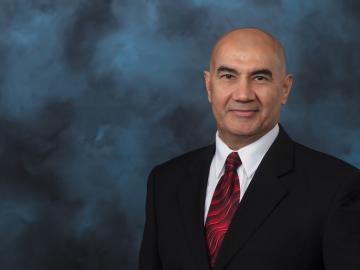
Mohamad Zineddin, a distinguished researcher in nuclear and radiological engineering, recently received the Roger Howsley Award for Excellence in Nuclear Security.

Benjamin Manard, an analytical chemist in the Chemical Sciences Division of the Department of Energy’s Oak Ridge National Laboratory, will receive the 2024 Lester W. Strock Award from the Society of Applied Spectroscopy.
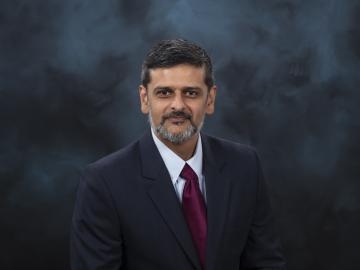
Anuj J. Kapadia, who leads the Advanced Computing in Health Sciences Section at the Department of Energy’s Oak Ridge National Laboratory, was named a 2024 Fellow by the American Association of Physicists in Medicine.

ORNL has named W. David Pointer, director of the Nuclear Energy and Fuel Cycle Division in ORNL’s Fusion and Fission Energy and Science Directorate. As director, Pointer will lead a world-class team of ORNL research professionals focused on addressing the challenges and opportunities presented by current and future nuclear energy systems.
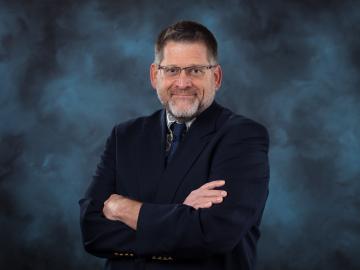
Forrest Hoffman, a distinguished scientist at the Department of Energy’s Oak Ridge National Laboratory, has been named a senior member of the Institute of Electrical and Electronics Engineers, the world’s largest organization for technical professionals.
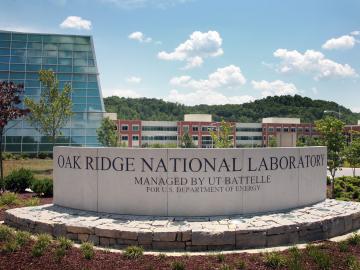
ORNL took home the top honors in three categories at the second annual DOE Geospatial Science Poster competition, held on National GIS Day. For the second year in a row, DOE awarded ORNL top prize as Best Geospatial Program. Additionally, ORNL geospatial researchers took home first place prizes for their posters in the Best Departmental Element Alignment and Best Cartography categories.
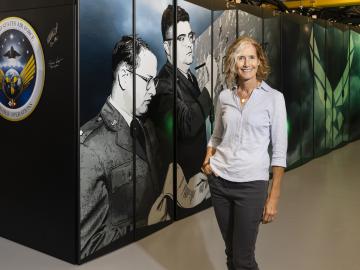
Kate Evans, director for the Computational Sciences and Engineering Division at ORNL, has been awarded the 2024 Society for Industrial and Applied Mathematicians Activity Group on Mathematics of Planet Earth Prize.
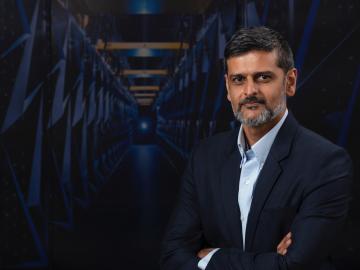
Anuj J. Kapadia, who heads the Advanced Computing Methods for Health Sciences Section at ORNL, has been elected as president of the Southeastern Chapter of the American Association of Physicists in Medicine.


